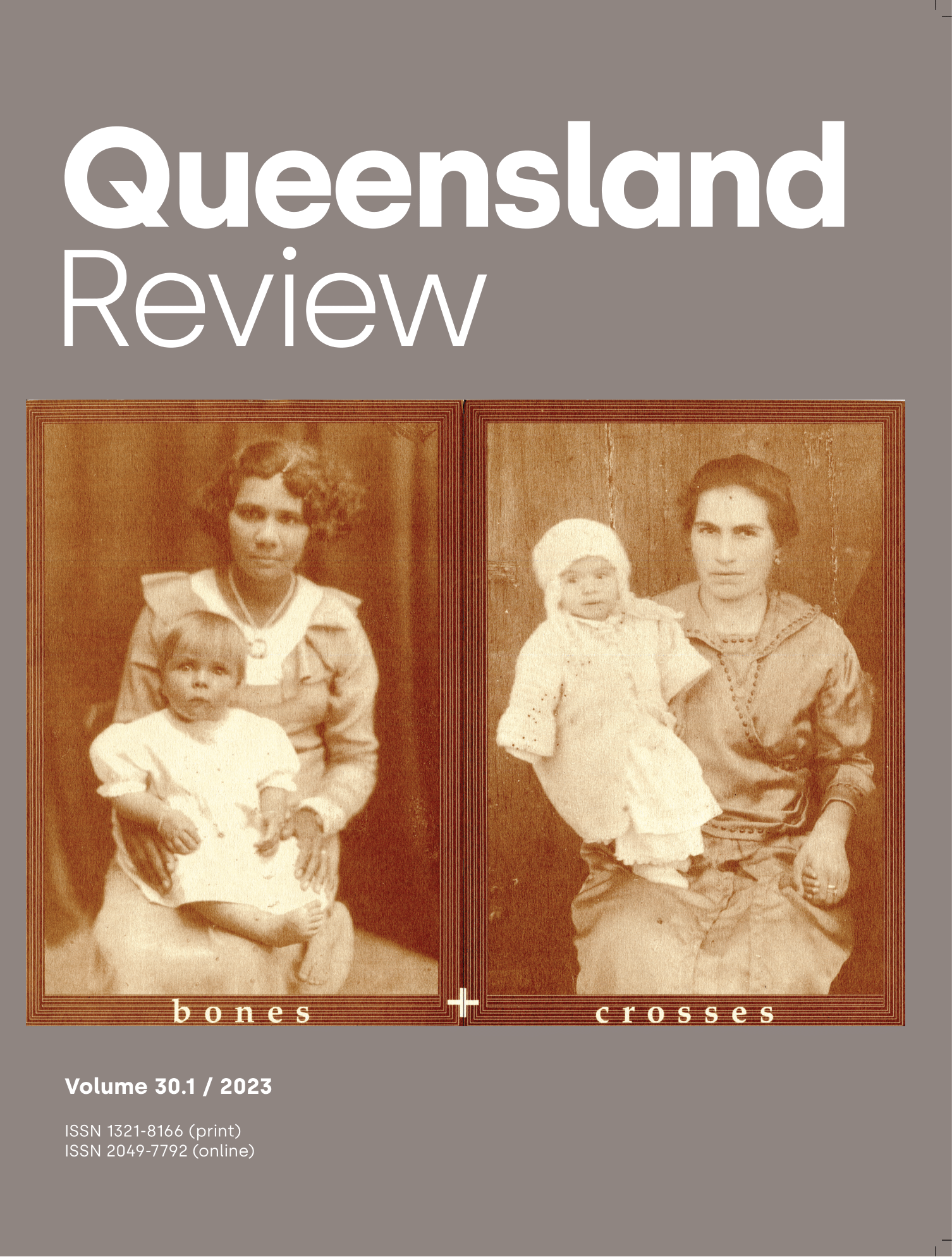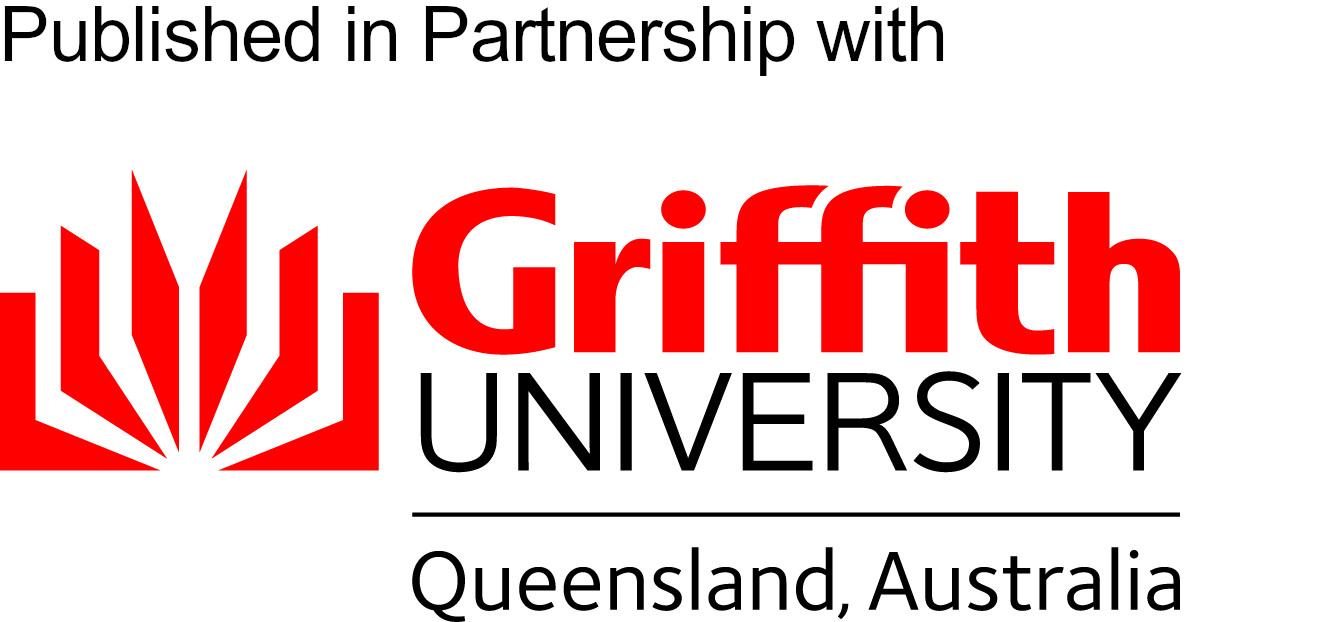Journeying into Australian literature
A memoir and reflection
DOI:
https://doi.org/10.1558/qre.26535Keywords:
David Malouf, ethnophilology, 'An Imaginary Life', Italy, ‘Kubla Khan’, partnership studies, Samuel Taylor ColeridgeAbstract
In this memoir, Antonella Riem reflects on her long career in Australian literary studies in Italy and internationally, and the scholars who have inspired her. She then outlines the principles of the partnership model of literary studies that she has developed over many years, and how she applies her approach to Samuel Taylor Coleridge’s ‘Kubla Khan’ and David Malouf’s An Imaginary Life.
References
Antonella Riem Natale, Sue Ballyn, Stefano Mercanti and Caterina Colomba (eds), I’m listening like the orange tree: In memory of Laurie Hergenhan (Udine: Forum, 2021).
Laurie Hergenhan, ‘Discoveries and transformations: Aspects of David Malouf’s work’, Australian Literary Studies 11(3) (1984), 328–41, https://doi.org/10.20314/als.98aa9f9953; Laurie Hergenhan, ‘War in post-1960s fiction: Johnston, Stow, McDonald, Malouf and Les Murray’, Australian Literary Studies 12(2) (1985), 248–60, https://doi.org/10.20314/als.c043d89d74.
https://partnershipstudiesgroup.uniud.it [1 May 2023]
http://www.australianstudies.eu/?page_id=335 [1 May 2023]
https://www.eaclals.com [1 May 2023]
Martine Leer, ‘At the edge: Geography and the imagination in the work of David Malouf’, Australian Literary Studies 12(1) (1985), 3–21, https://doi.org/10.20314/als.e9938dde39; Martin Leer, ‘Edge to centre: Geography and the imagination in the work of David Malouf, Randolph Stow and Les A. Murray’, PhD thesis, University of Queensland (1988).
See http://www.antonellariem.it [1 May 2023]
Antonella Riem, A gesture of reconciliation: Partnership studies in Australian literature (Udine: Forum, 2017). See https://centerforpartnership.org/news-events/riemudine [1 May 2023].
See Barbara Manzini and Laura Egan, ‘Italian academic Antonella Riem recognised for promoting Australian literature around the world’, Il Globo, n.d. Available from: https://ilglobo.com/en/news/italian-academic-antonella-riem-recognised-for-promoting-australian-literature-around-the-world-73062/# [1 May 2023]
See http://all.uniud.it/?page_id=60 [1 May 2023].
James Hillman, Re-visioning psychology (New York: HarperCollins, 1975).
Joseph Campbell, The hero with a thousand faces (Princeton, NJ: Princeton University Press, 1949).
Shinoda Bolen, Goddesses in every woman: A new psychology of women (New York: Harper & Row, 1984).
The quotation is from Capra’s invitation to his course at: https://www.capracourse.net. See also Capra’s many books from The tao of physics (New York: Flamingo-Harper Collins, 1975) to The ecology of law: Toward a legal system in tune with nature and community, with Ugo Mattei (Oakland, CA: Berrett-Koehler, 2015). For a complete list, see: https://www.fritjofcapra.net/books [1 May 2023].
Clarissa Pinkola Estés, Women who run with the wolves (New York: Ballantine Books, 1992).
Francesco Benozzo, Etnofilologia. Un’introduzione (Naples: Liguori, 2010), p. 47, my translation.
The journal is listed in ERIHPLUS, AUSTLIT, HARVARD, GIGA and Google Scholar, and was recently inserted in the Emerging Sources Citation Index of Clarivate Analytics.
See https://www.uniud.it/it/didattica/formazione-post-laurea/master/alta-formazione/Area-umanistica-comunicazione-formazione/partnership-sciamanesimo [1 May 2023].
See, for example, Bob Hodge and Vijay Mishra, Dark side of the dream: Australian literature and the post-colonial mind (Sydney: Allen & Unwin, 1991).
Francesco Benozzo, Breviario di Etnofilologia (Lecce: Pensa, 2012), p. 196, my translation. See also A. R. Momin, ‘Multicommunitarianism in a fragmented world’, Asia Europe Journal 2(3) (2004), 445–59. https://doi.org/10.1007/s10308-004-0098-4.
For a more detailed discussion of the dynamic interplay between the COVID-19 pandemic and neoliberal globalism, see Stefano Mercanti and Antonella Riem, ‘The gift of partnership’, Interdisciplinary Journal of Partnership Studies 9(2) (2022). Available from: https://pubs.lib.umn.edu/index.php/ijps/article/view/5131 [1 May 2023]. The remainder of the paragraph is drawn directly from that article. https://doi.org/10.24926/ijps.v9i2.5131.
I choose to put ‘developed’ in inverted commas because ‘developed’ and ‘underdeveloped’ are typical definitions of a globalised dominator world trying to supersede ancient traditions, with a complete blocking out of positive and creative cultural differences in favour of a generalised world society that is both superficial and consumerist.
G30 Working Group on Corporate Sector Revitalization, Reviving and Restructuring the Corporate Sector Post-Covid. Designing Public Policy Interventions (2020), https://group30.org/publications/detail/4820 [1 May 2023].
G30 Working Group, Designing Public Policy Interventions, Box 2, p. 22.
G30 Working Group, Designing Public Policy Interventions, Box 2, p. 3.
A very interesting article is Julie Sladden’s ‘Where’s Our COVID “Sorry Day”? Sorry Seems to Be the Hardest Word for Our Politicians to Utter’, The Spectator, October 2022. Available from: https://spectator.com.au/2022/10/wheres-our-covid-sorry-day. The article mentions that a group of Australian scientists, doctors and leading academics have formed a group called Australians for Science and Freedom [1 May 2023].
Raimon Panikkar, Lo spirito della parola (Milan: Bollati Boringhieri, 2007), pp. 80ff.
See Barbara Walker, The woman’s encyclopaedia of myths and secrets (San Francisco: Harper & Row, 1983); and Barbara Walker, The woman’s dictionary of symbols and sacred objects (San Francisco: Harper & Row, 1988).
Stephen H. Kellert, In the wake of chaos: Unpredictable order in dynamical systems (Chicago: Chicago University Press, 1993). On pluralism in scientific approaches, see Stephen H. Kellert, Helen E. Longino and C. Kenneth Waters (eds), Scientific pluralism (Minneapolis: Minnesota University Press, 2006).
I have had the honour and pleasure of working with some of the Yolngu people, who also participated, as speakers, artists and dancers, in the international conference titled ‘Partnership Id-Entities: Cultural and Literal Re-inscription/s of the Feminine’ that I organised at the University in Udine, 9–11 November 2009. I am not naming these people out of respect, as some have passed away.
Fritjof Capra, The web of life: A new scientific understanding of living systems (New York: Anchor Books, 1996).
A concept in chaos theory, the butterfly effect was named by Edward Norton Lorenz in his work on the unpredictability of non-linear systems. The term referred to his example of the possible influence of a butterfly flapping its wings on the development of a tornado. See https://mathsciencehistory.com/wp-content/uploads/2020/03/132_kap6_lorenz_artikel_the_butterfly_effect.pdf [1 May 2023].
Raimon Panikkar, ‘Human dialogue and religious inter-independence. FIRE AND CRYSTAL’, Faith and Development 310 (2003), 3. Available from: http://www.lebret-irfed.org/IMG/pdf/Panikkar_Raimon_en03.pdf [1 May 2023].
Benozzo, Breviario di Etnofilologia, 206, my translation.
See the journal Australian Aboriginal Studies. Available at: https://aiatsis.gov.au/publications/australian-aboriginal-studies-journal. See also Yimikirli, Walpiri Dreamings and histories: Newly recorded sayings from Aboriginal Elders of Central Australia (New Haven, CT: Yale University Press, 2011); James Cowan, Myths of the Dreaming (Roseville, CA: Unity Press, 1994); Ronald M. Berndt and Catherine H. Berndt (eds), The speaking land: Myth and story in Aboriginal Australia (Rochester: Inner Traditions, 1988); Diane Bell, Daughters of the Dreaming (Melbourne: Spinifex Press, 2002); Julianne Schultz (ed.), ‘Dreams of land’, Griffith Review, 2 (2003); Philip Clarke, Where the ancestors walked: Australia as an Aboriginal landscape (Sydney: Allen & Unwin, 2003).
Born in Ottery St Mary in Devon, England, on 21 October 1772, Coleridge died in London on 25 July 1834, aged sixty-one. See my latest book on his work: Antonella Riem Natale, Coleridge and Hinduism: The unstruck sound (Newcastle upon Tyne: Cambridge Scholars Publishing, 2023).
Malouf was born in Brisbane, Australia, on 20 March 1934. His father was Christian, of Lebanese origin; his mother was English, of Jewish-Sephardi descent.
Samuel Taylor Coleridge, Complete poetical works, ed. Ernest Hartley (Oxford: Oxford University Press, 1983). Quotations from Coleridge’s poetry are from this edition.
‘Kubla Khan’, in Coleridge, Complete poetical works, lines 37–54, p. 298.
‘Kubla Khan’, in Coleridge, Complete poetical works, p. 296.
‘Kubla Khan’, in Coleridge, Complete poetical works, line 31, p. 298.
‘Kubla Khan’, in Coleridge, Complete poetical works, line 43, p. 298.
Swami Shantananda, The splendor of recognition: An exploration of the Pratyabhijñā-hrdayam, a text on the ancient science of the soul (South Fallsburg, NY: SYDA Foundation, 2003), pp. 42, 43.
Plotinus, The Enneads, trans. Stephen MacKenna, ed. John Dillon (Harmondsworth: Penguin, 1991), IL. 4.41, p. 328.
David Malouf, An imaginary life (Sydney: Picador Pan, 1980). Quotations are from this edition.
I find Renato Oniga’s study of the connections between the Roman Ovid and Malouf’s Ovid very interesting. See Renato Oniga, ‘David Malouf e i classici’, Le Simplegadi, 9 (2011), 120–48.
Malouf, An imaginary life, pp. 31–2.
Malouf, An imaginary life, pp. 32–3, emphasis added.
Benozzo, Breviario di Etnofilologia, p. 15, my translation.
Panikkar, Lo spirito della parola, p. 95, my translation; emphasis added.
‘The Eolian Harp’, in Coleridge, Complete poetical works, line 26, p. 101.
Malouf, An imaginary life, p. 98, emphasis added.
Malouf, An imaginary life, p. 152.






